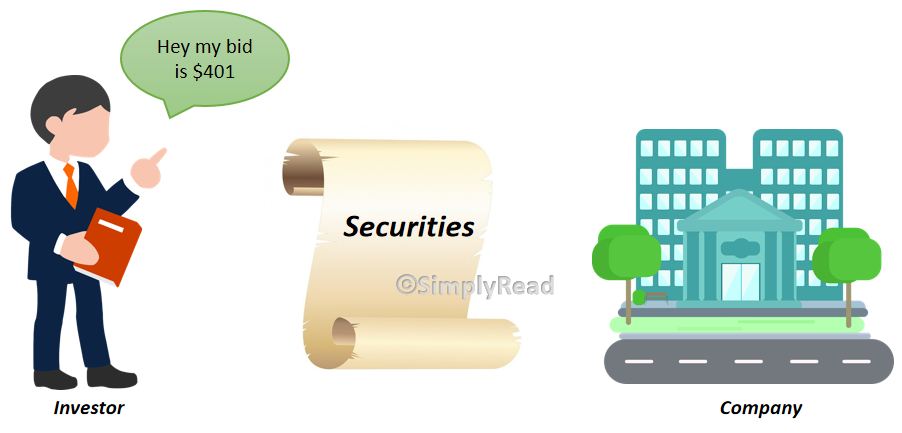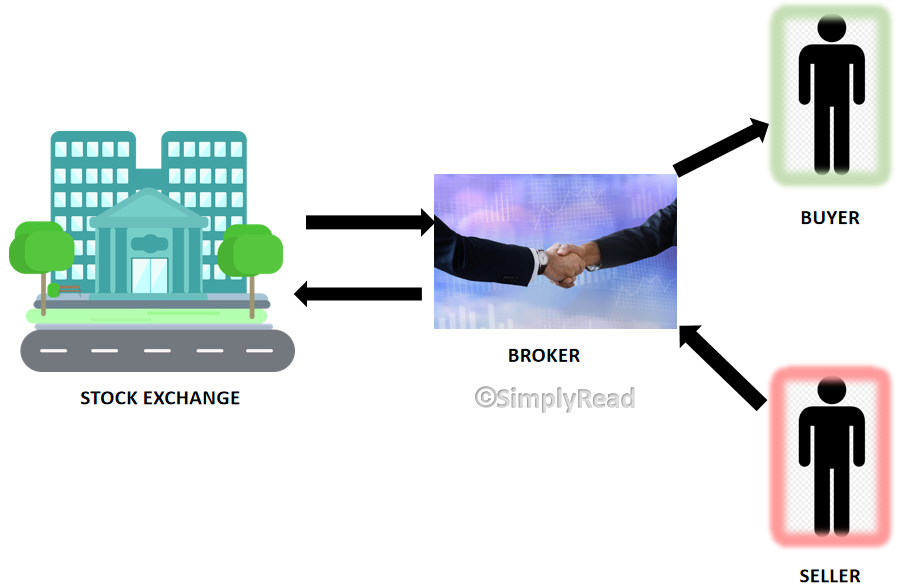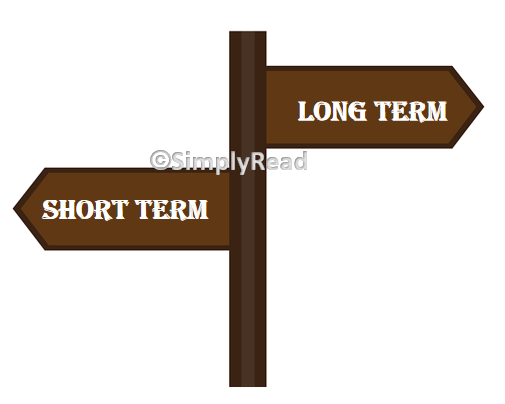Many of us today are holding money in a bank account. As a result, the bank gives interest for the holding amount which is very less than ~3%. That’s annoying! Do you need a greater return? Then, you’re at the right place. Of all the investment methods, Investing in Stock Market gives a greater return. However, Stock Market always accompanies risk with it. Everything is risky in life. We just need to know how to handle it. Let’s discuss investing in the stock market in detail. Click here to learn about the risk-reward for different types of investments.
Dear Reader, Welcome to SimplyRead. Yes, here things are so simple!
WHAT IS INVESTING?
Investing can be defined as spending effort or energy or resource on the desired entity to get maximum benefits out of it over some time. Also, Investment doesn’t mean only money. However, it refers to anything we make effort such as investing our time to learn a skill. Moreover, a skill cannot be mastered overnight. Likewise, investing money needs a considerable amount of time to grow.
Rome wasn’t built in a day!

So, the investor should understand that investment is a long-term horizon. Additionally, the longer you hold the greater will be the return, and is subject to market movements.
TYPES OF INVESTMENTS IN STOCK MARKET
The investor can invest in different types of asset classes in the Stock Market. The asset classes are as follows.
- Stocks
- Mutual Funds. Click here to learn about Mutual Fund.
- Bonds
- Commodities. Click here to learn about investment in Gold.
- Exchange Traded Funds (ETF)
- Cash and Cash Equivalent (CCE) Ex: Treasury bills, Money Market funds.
- Derivatives (Futures and options)
HOW TO INVEST?
Firstly, an investor must have a Demat and Trading account along with a Bank account. Click here to learn about the Demat account. However, It is not mandatory to have a Demat Account for investing in Mutual Funds. Investors can place buy and sell orders on the brokerage platform to buy and sell stocks and other securities. Click here to learn the Basics of the Stock Market.
WHAT IS PRIMARY MARKET?
Issuing of shares directly to the trading account is termed a Primary Market. In other words, the share is not publicly traded in exchange. The Types of the primary market are Initial Public Offering (IPO), Rights issue, Private placement, and a Preferred Allotment.

INITIAL PUBLIC OFFERING (IPO)
IPO is nothing but the initial listing of shares of the company in public. Also, this is coined “Initial Public Offering (IPO)”. The investors can buy the share at the initial offering price decided by the company. However, It doesn’t mean that we should always grab the shares of the company in the IPO thinking that he/she made a better deal. It is subject to the valuation of the company and its prospects.

Let’s take an example of a company named SimplyRead. Firstly, SimplyRead decides to list the shares publicly on the exchange. Secondly, it will decide on a price band for the same. Let’s say the company decides on the price band ranging from ₹400-₹450. Thirdly, the investors need to bid for the shares. Let’s assume a person is bidding for ₹401/share for 10 shares. Ultimately, the shares will be allocated by the company to the bidders and will reflect in their trading account.
P.S. Allocation of shares in IPO is based upon the subscription percentage.
RIGHTS ISSUE
Have you ever wondered how corporates are retaining their customers without losing them? Certainly, Offers and Quality. Likewise, some companies provide an opportunity for existing shareholders to buy additional shares directly without trading in exchange.
PREFERENTIAL ALLOTMENT
Preferential Allotment refers to the issuance of shares to the preferred group of individuals. Unlike Rights Issue, preferential allotment enables the transfer of shares to outsiders and existing shareholders.
PRIVATE PLACEMENT
The private placement is similar to nothing but the procedure involved for the preferential allotment. Here, the shares are transferred privately to the selected individuals without trading in exchange. Generally, the selected individuals may be friends, family, or institutional investors.
WHAT IS SECONDARY MARKET?
The secondary market is the actual live market where the investors buy and sell shares or other securities through the stock exchange. For example: To buy a company named “MRF” share, one can directly buy it from another shareholder rather than directly through the company.

Secondary MarketSTOCK EXCHANGE
Stock Exchange is the centralized entity where the trader/investor can buy and sell stocks, bonds, and other securities in electronic form. Simply put, buying and selling securities online. Additionally, In India, the centralized depositories named CDSL (Central Depositories Services Limited) and NSDL (National Securities Depositories Limited) hold these securities in electronic form. National Stock Exchange (NSE) is the primary operating market of NSDL whereas the Bombay Stock Exchange (BSE) is for CDSL.
OVER THE COUNTER (OTC)
Over the counter is a decentralized secondary market trading. In India, it is abbreviated as Over the Counter Exchange of India (OTCEI). Moreover, The counter is the place where the transaction occurs. The buyer and the seller directly trade with each other at the counter. All the trades happen with the technology known as OTCEI Automated Securities Integrated System (OASIS).
INVESTMENT HORIZON

As already discussed, Investment generally means investing and holding for a long period. Further, the investment can be classified as long-term and short-term investments. Short-Term investment generally ranges from 3 months to 1 year. Whereas long-term investment ranges from 3 years to 10 years. Also, it’s an individual’s choice based on their goal or purpose.
If you’re holding valuable stocks or MF or ETF, SimplyRead suggests holding them for the long term. Moreover, the investments are subject to market risk. Always invest according to your risk profile and do your analysis before investing. Click here to read the Myths on Stock Market.
TO WRAP THINGS UP!
Hope you have got an idea on how investing works in stock market. When you’re going to start your investment? What kind of asset class chosen to invest in? Let me know in the comment box!
Thanks for reading! So Simple!
REFERAL LINKS FOR BROKER
- Zerodha: https://zerodha.com/open-account?c=JL3357
- PaytmMoney: https://paytmmoney.page.link/3L1iSDbjqQM3aVHRA
- IIFL Markets: https://cutt.ly/dK3gS0e
- Finvasia: https://prism.finvasia.com/register/?franchiseLead=NjM5MjI=


